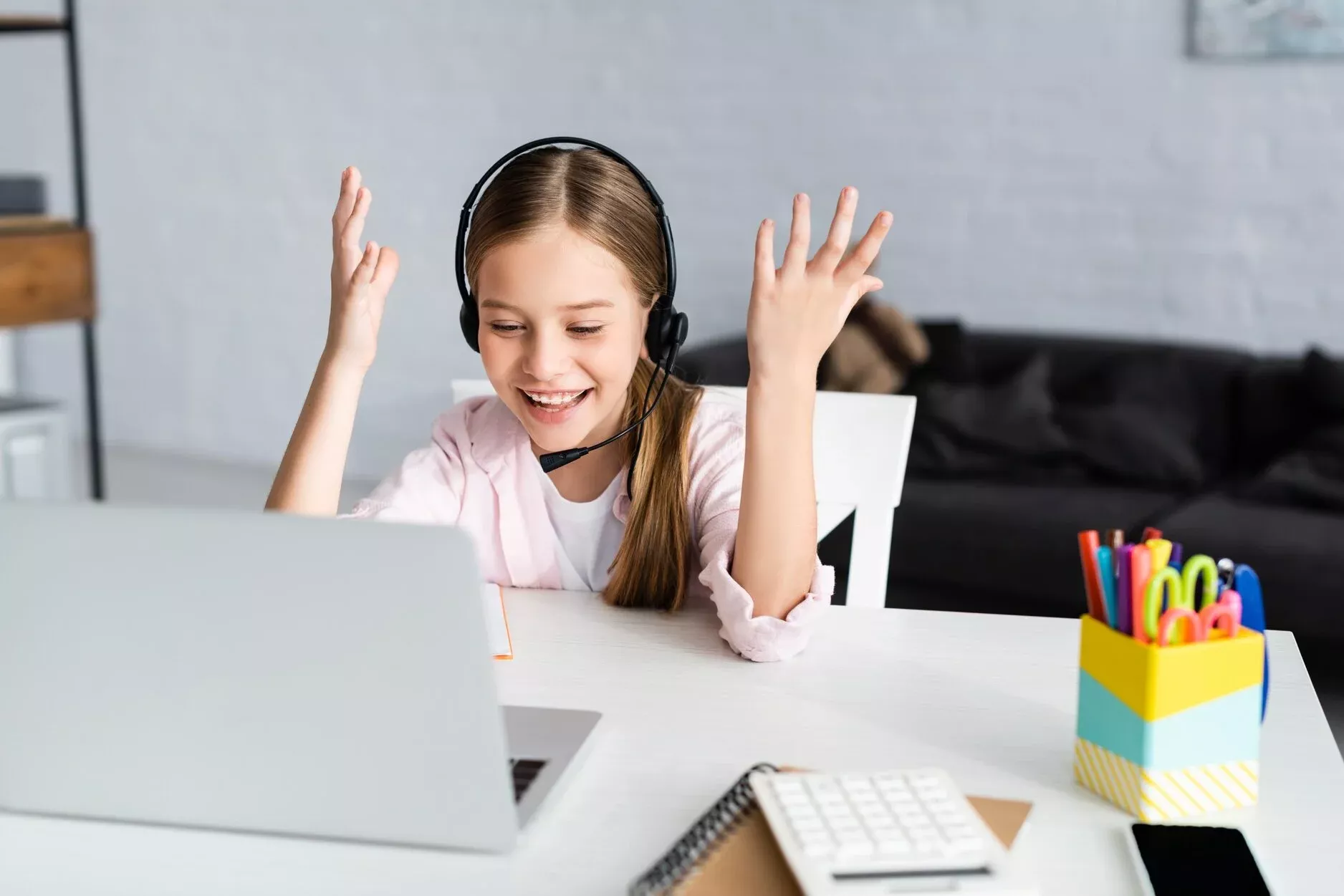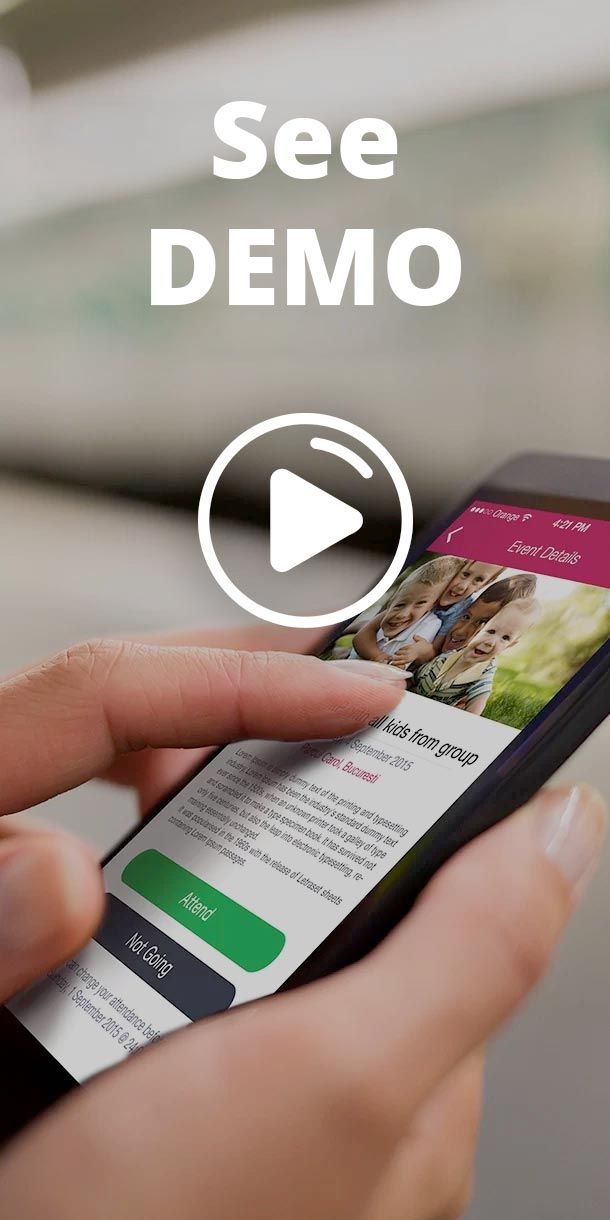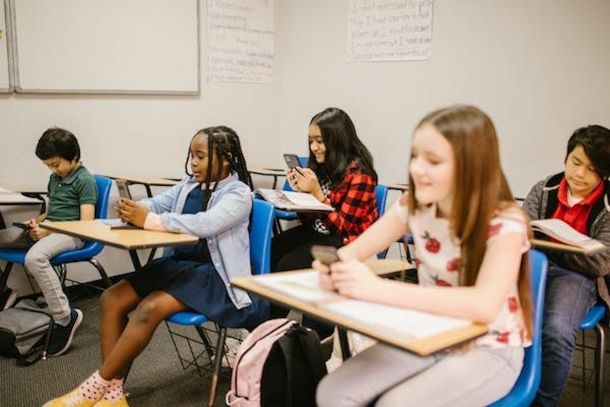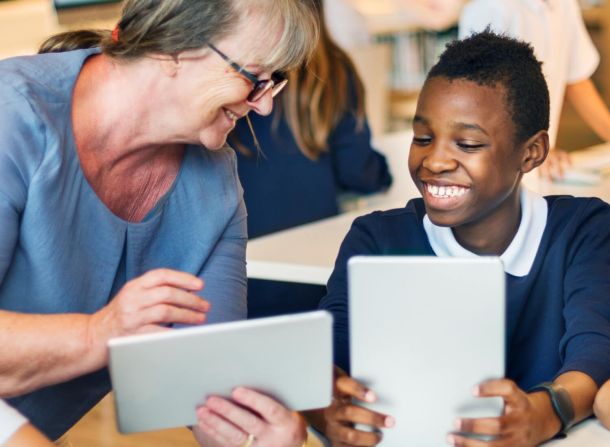
How we help children to have a healthy relationship with technology
It is certain that adults, parents, or educators, can not change the fact that screens are becoming more and more present in children's lives and are now permanent. However, it is essential to help children to create a healthy relationship with technology and to strike a balance between the development of this digital competence and the development of other competencies which involve creativity, resilience, emotional self-control, critical thinking, and social skills.
Research from 2012 by the American Academy of Pediatrics shows that parents provide various devices to children either for fun, to reassure them, or as a "babysitter" when they are very busy.
Whether we're talking about constant monitoring of time spent in the company of technology or building a set of rules with your child, all of these come in handy in the form of useful tools to guide the development of an environmental relationship with all things media devices. Alongside the many tips offered by experts, the power of example is a pillar of building such a beneficial connection.
One of the most discussed and debated topics among adults today is screen time spent by the children around them.
The World Health Organization recommends that adults limit children's device activity to no more than one hour of exposure and stresses that it recommends as little time as possible. In addition to the WHO, other institutions also draw attention to the importance of the content children are exposed to, the appropriateness of the content for their age and developmental stage, and how long it is appropriate to leave young children with their devices. For its part, the American Academy of Pediatrics (AAP) recommends a maximum of two hours of exposure for preschoolers.
What impact will screens have on children's development?
How can I help create a healthy relationship between my child and technology?
Against the backdrop of these growing questions, the World Health Organization has conducted research on the number of time children spend in front of screens.
A very high percentage of parents of children under 12 say they are concerned that their little ones spend too much time in front of screens on certain devices, such as a smartphone. But what can we do to create a healthy relationship with technology?
The Children and Screens Institute offers some guidelines to help adults guide children in creating a healthy relationship with technology:
- Set time limits together.
It's very important to set some limits on how much you use devices during the day. Experts point to turning off devices during meals and a few hours before bedtime, and ideally no other devices in the room at night.
- Monitor your little ones' screen use.
Check both the content of material watched by children and children's behavior around screen use. Block inappropriate content and accompany them in watching certain clips or even join them in their favorite virtual game.
- Mention, explain, and argue what is and is not okay to do when using technology.
Establish, as a family, house rules about screen time. Don't let media devices steal from time with loved ones. When you propose to forbid them from doing something online, it's good to prepare a series of arguments that could include the consequences that certain actions in the virtual environment have on us.
Depending on children's age, needs and passions we can integrate technology in a balanced, conscious, and beneficial way into their daily and educational activities.
Adults cannot change the fact that screens are becoming more and more present in children's lives and are now permanent. But it is essential to help children to create a healthy relationship with their devices and a balance in their use.
Researchers in the field have found that parents are looking for concrete advice on how to introduce children to this world of technology. It's very important to guide your child gradually into a relationship with screens at the right age and stage. Don't look at technology as a negative thing, but rather look for the positive aspects it has. For example, the main purposes of using it with your child can be: to keep in touch with loved ones, to encourage originality, autonomy, and creativity, but also to learn new things.
Here's what you can do with your child, from an early age, to create healthy habits of using technology devices:
0-2 years - Too young to have brief contact with a screen? No.
Make short video conferences with loved ones at a distance, hold your child and explain what you're doing at that moment, who you're talking to and why you're communicating through a screen.
Play music from different devices and sing along.
3-6 years - Experience and curiosity about devices start now!
Send photos together to family and friends on social media.
Watch educational content together with your child and provide appropriate explanations. You can even explain the steps you took to reach those sources.
Write messages or emails to relatives and close friends. You can formulate them with your child's help, including their message to the person.
7-9 years - Creativity can also be experienced in the virtual world!
Look for and use apps together that develop your child's creativity and originality, such as a drawing app.
Get involved in the video games he wants to access. Set a time when you can play those games together as a family.
If you go on a walk or hike, save the photos and videos you take together in a digital album. Your child can use the phone to take their photos.
Use an app where you jot down reminders for homework, individual or joint tasks, written together in a virtual app.
Discover the Kinderpedia app together from the very first interactions with the school. Here, homework becomes a smart tool through which children gain autonomy and responsibility for their education and get prompt and personalized feedback from the teacher.
10-12 years - You can provide device support at any age!
Support your child in pursuing their passions even online. For example, you can search for singing lessons, karaoke videos, dance, DIY or cooking tutorials, download drawing apps, photo editing apps or even digital books if your passion is reading.
Don't label technology as the enemy of learning and homework, but rather, call it a friend or helper. Don't forbid him from using the internet when he needs homework support, but teach him to seek information from trusted sources. Teach him that it's not okay to copy other people's information and opinions, but he can use them for inspiration.
Get on social media together and set limits on sharing confidential data or other information from your personal life online. Follow other pages and people's posts together and decide on "so what" and "so what" when sharing things on your profile.
The key is to keep in mind that these suggested apps can be tailored to your own family's reality, to your child's interests which may be higher or lower in terms of technology. Of course, there are plenty of other activities specific to the virtual environment, but what matters is involving the family in these activities, setting rules for using the devices, and finding a balance between online and real-life activities.
The basis of building a healthy relationship with technology: the power of example
The power of example is a key pillar in building a healthy relationship with others, with oneself, and even with technology. It is essential that you, the parent and the role model for the child, also follow the rules set in the family. The child will certainly follow this.
Thus, the first step towards supporting the child's journey through the virtual realm is to even involve the family in the process. In addition to this, screen time should not be allowed to interfere with time spent with loved ones or even time dedicated to a restful sleep. There is no perfect recipe for creating this healthy relationship, but certainly, the first step towards this goal is to document what the experts are telling us and integrate this advice, on a personalized basis, into your child's and family's lifestyle.

Kinderpedia
The complete communication and management solution for schools and childcare centres.
Simplifies teachers' work and brings parents closer to their children's school progress.
Recommended articles
Want to improve your center quality? Kinderpedia is here to help! Not only do we provide thousands of informational content pieces like blog posts, podcasts, webinars and more, we are also makers of the #1 Rated and Reviewed Childcare Software.







